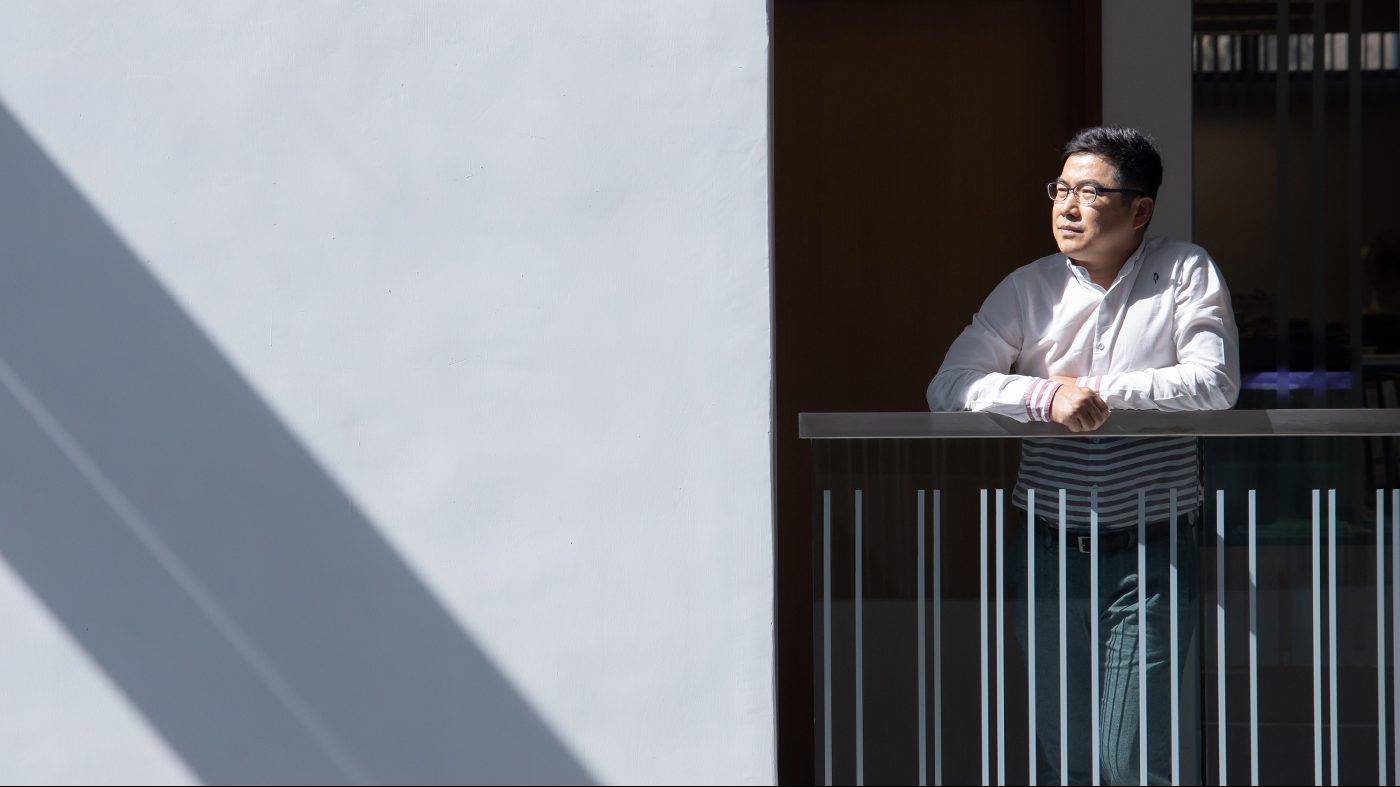Wisdom of the Crowd

Kim Keongtae discovers crowdfunders are expert followers
Crowdfunding is a new and relatively untested way for startups to raise money. It opens up to the public a world traditionally populated by angel investors and venture capitalists. Although the process has its risks, the investors in the crowd make better decisions than might be expected, given their inexperience.
Investors with expertise and experience in the field have a disproportionate influence on the success or failure of a fundraising effort, according to the research of Prof. Kim Keongtae. Other investors heed the actions and advice of those experts, Professor Kim’s work shows, the first study of its kind.
A crowd-driven funding model is not an unruly mob, in other words. Professor Kim shows that experts invest earlier than the crowd, and have an outsize impact when their expertise aligns with the underlying risks of the startup in question. Startups that draw this kind of expert investment also show better performance down the line.
There are two main drivers. First, experts select better startups in the first place. Second, they can add value to the startups they select.
The crowd shows more sophistication than we might initially credit it with. They are able to identify these experts, and act upon the signals provided by the behaviour of the experts.
The crowd also looks for the right kind of expertise. Professor Kim’s work demonstrates that experts are not always influential—they only exert influence when their particular expertise aligns with the underlying risk surrounding the startup. The experts divided into two camps: market experts, and product experts.
“This research implies these experts are influential, but only when the expertise is aligned with the nature of the risk,” Professor Kim says.
To compile his results, Kim worked with a smaller crowdfunding platform, App Backer, unfortunately now defunct. But the results still hold.
App Backer supplied information on its website about who was investing in what, when and how much they put up. One click on the investor in question would provide their past investment history, helping other investors establish if they know what they are doing or not.
There is another advantage to the data set. App Backer provided crowdfunding only for mobile apps. That made the population of investment companies fairly homogenous, with measurable performance metrics such as the number of downloads an app later has.
A larger crowdfunding platform such as Kickstarter would not have provided that level of detail. There are also many kinds of project on Kickstarter, perhaps a college musician trying to fund an album, or a novice director trying to get a movie project off the ground. The success of such diverse projects is far harder to assess.

Professor Kim separated the apps into two camps: concept apps, which have an idea that may still be under development; and live apps, which are already being sold but may require funding to improve the app or expand marketing.
Product experts have particular influence on concept apps, whereas market experts are influential for live apps, according to the findings of Professor Kim. He won a 2020 Young Researcher Award at CUHK for his work on crowdfunding, as one of the few professors to have taken any academic rigour to the topic.
“Crowds can differentiate different types of signals, and act on those signals,” says Professor Kim, who is an associate professor in CUHK Business School’s Department of Decision Sciences and Managerial Economics. “They are not naïve. They will only follow experts when the expertise is aligned with the nature of the uncertainty.”
Regular investors pumped money into concept apps favoured by product experts. But if product experts invest into live apps, they did not prove influential. The same is true that market experts drew money to live apps, but not concept apps. Professor Kim tracked whether money flows followed the decisions made by the expert investors, and the subsequent success of the app.
There are implications for policymakers. The category of “professional” or “angel” investor is often defined by securities law, and it would be worth identifying such investors on the crowdfunding platform so that “regular” investors can pay attention to what they do. Disclosure requirements could be imposed on crowdfunding platforms to ensure that information is made clear. The more information is available to the crowd, the better the decisions it makes.
Equity-based investing, in which crowdfunders are pumping money into a company in exchange for an ownership stake, is of greater concern. It makes sense, Professor Kim says, to restrict how much an individual investor can place in a startup, depending on their experience. Startups seeking equity funding should face greater requirements on what information they provide, too, Professor Kim adds.
Reward-based crowdfunding, though, seeks investment in return for a product to be made, for instance. In those cases, an investor only puts at risk the price of the product. Such markets may be able to function with fewer restrictions, Professor Kim suggests.

Crowdfunding can fill an important gap in the credit system, particularly during an economic downturn. At such a time, banks may restrict their lending, and startups may find it particularly difficult to secure financial backing. Non-traditional funding sources can then step in.
Crowdfunding is a nascent system that nevertheless seems to be functioning well. Should investors be persistently disappointed with the outcome of their investments, then the public could lose faith in it. But Professor Kim’s work suggests the right kinds of company are ending up with the funds.
“Crowdfunding is fairly rational,” Professor Kim says. “If bad-quality projects raise more money than good-quality projects, it means this market isn’t working very well. In my research we didn’t find that.”
by Alex Frew McMillan
Photos by Eric Sin
This article first appeared in No. 567, CUHK Newsletter, reprinted with permission from Information Services Office, The Chinese University of Hong Kong.

